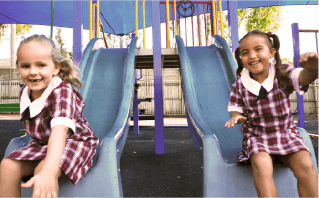
Pretend play with guns is a common activity among children, but it can be a controversial topic for parents. On the one hand, it can be seen as a harmless form of imaginative play that allows children to express themselves and develop social and cognitive skills. But on the other hand, it can be seen as promoting violence and aggression.
Some people feel that imitation of an actual weapon is inappropriate, while others are fine with it as long as it’s closely monitored. Depending on your background and stance on gun control, the answer to this question will likely be different for everyone.
So, what should parents do when faced with a scenario where their child wants to play with toy guns?
First, it is essential to recognize that children have a natural curiosity and desire to explore and learn about the world around them. Pretend play with guns can be a way for children to understand and make sense of the world, particularly regarding issues of power, control, and safety.
However, it is also important to be mindful of the messages that children may be receiving through their play. For example, if children play in a way that glorifies violence or aggression, it is essential to intervene and guide their play in a more positive direction.
Setting limits and communicating your expectations based on your beliefs about guns and safety is essential. Here are some tips on how you can address these issues appropriately:
Educate Your Kids About Gun Safety
Your children must understand the importance of gun safety if they play with toy guns or pretend to be involved in a pretend shooting situation. You should discuss that real guns can cause severe injury or death if not handled properly and make sure they know that toy guns need to stay in safe environments like playgrounds or backyards — not classrooms or public spaces.
Talk About What Weapons Represent
Conversations about why adults use weapons can help explain why certain things aren’t allowed to be played out in pretend scenarios, such as killing each other or robbing stores at gunpoint. Explain to them the potential implications of using weapons, such as the idea that hurting someone could never be justified, regardless of pretend situations they may see in movies or video games.
Supervise Pretend Play Time
Supervising them during these activities is critical if you choose to allow your child to engage in pretend play with guns. This way, you can monitor how they interact with others in these imaginary scenarios and ensure violence isn’t being glorified or tolerated within any game rules you lay down beforehand. In addition, make sure there is an open dialogue between everyone involved so no one feels excluded from understanding appropriate behaviour during the game.
Find Alternatives To Guns For Toy Play & Role-Playing Games
While some people are okay with letting kids pretend play with guns, many parents would instead find alternatives for their children that don’t involve imitation firearms at all. If this applies to you, consider introducing non-weapon toys for imaginative play. Try dress-up clothes for superheroes and imaginary characters like pirates and Jedi knights who rely more on strategy than force when solving conflicts between each other. There are also many board games available now that require strategising over physical combat tactics — all in a fun environment!
It’s really up to individual families what kind of activities they feel comfortable allowing their children to partake in during imaginative playtime; however, having an honest conversation about gun safety (whether real or fake) first will help lay down healthy boundaries both physically and mentally when approaching any weapon-related activity involving children.
In summary, while pretend play with guns can be a normal and healthy part of childhood, it is important for parents to be aware of the messages that children may be receiving through their play and to guide them in a positive direction actively. In addition, parents can use this as an opportunity to teach children about the effects of violence and the importance of peace and non-violence.
References
- “Children and Play: The Importance of Play in Promoting Healthy Child Development and Maintaining Strong Parent-Child Bonds” by the American Academy of Pediatrics.
- “Pretend Play, Aggression, and Prosocial Behavior: A Longitudinal Study” by Marjorie Taylor, published in Child Development.
- “The Role of Pretend Play in Children’s Cognitive Development” by Alison Gopnik and Andrew N. Meltzoff, published in the Handbook of Child Psychology.
- “The Impact of Video Games on Children: What Parents Need to Know” by the American Psychological Association.
It is important to note that some studies may have different conclusions or perspectives. Therefore, it is recommended that parents read multiple sources and form their own opinion on the topic.
Related Articles
Assertive Communication Styles for Kids




